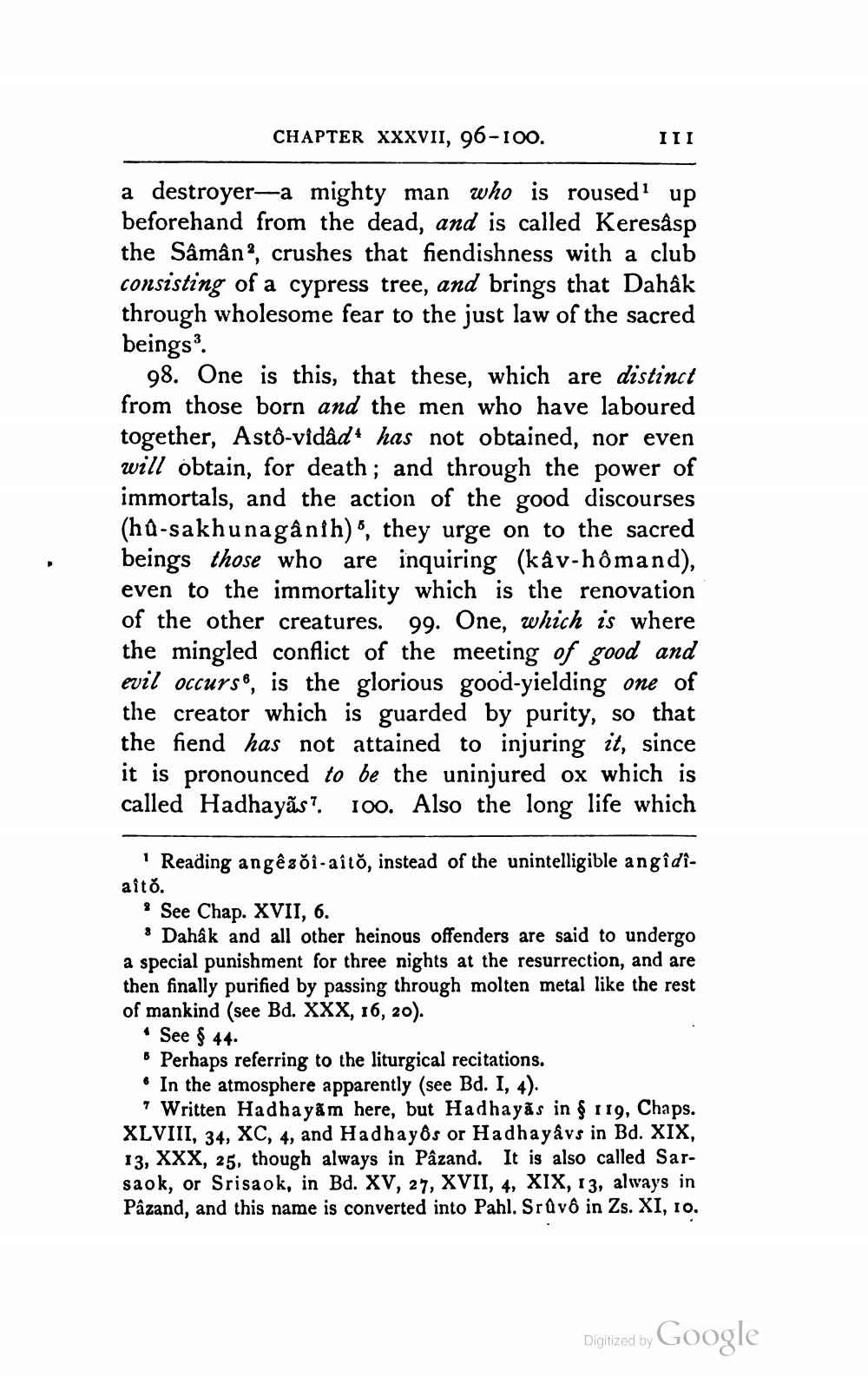________________
CHAPTER XXXVII, 96-100.
III
a destroyer-a mighty man who is roused up beforehand from the dead, and is called Keresâsp the Sâmân?, crushes that fiendishness with a club consisting of a cypress tree, and brings that Dahâk through wholesome fear to the just law of the sacred beings.
98. One is this, that these, which are distinct from those born and the men who have laboured together, Astô-vidad+ has not obtained, nor even will obtain, for death; and through the power of immortals, and the action of the good discourses (hu-sakhunagânih)', they urge on to the sacred beings those who are inquiring (kâv-hômand), even to the immortality which is the renovation of the other creatures. 99. One, which is where the mingled conflict of the meeting of good and evil occurse, is the glorious good-yielding one of the creator which is guarded by purity, so that the fiend has not attained to injuring it, since it is pronounced to be the uninjured ox which is called Hadhayãs? 100. Also the long life which
Reading angê xoi-a ito, instead of the unintelligible angîdiaito.
* See Chap. XVII, 6.
8 Dahâk and all other heinous offenders are said to undergo a special punishment for three nights at the resurrection, and are then finally purified by passing through molten metal like the rest of mankind (see Bd. XXX, 16, 20).
• See § 44. * Perhaps referring to the liturgical recitations. . In the atmosphere apparently (see Bd. I, 4).
7 Written Hadha ya m here, but Hadhayās in $ 119, Chaps. XLVIII, 34, XC, 4, and Hadhayôs or Hadhayâvs in Bd. XIX, 13, XXX, 25, though always in Pâzand. It is also called Sarsaok, or Srisaok, in Bd. XV, 27, XVII, 4, XIX, 13, always in Pâzand, and this name is converted into Pahl. Srûvô in Zs. XI, 10.
Digitized by Google




